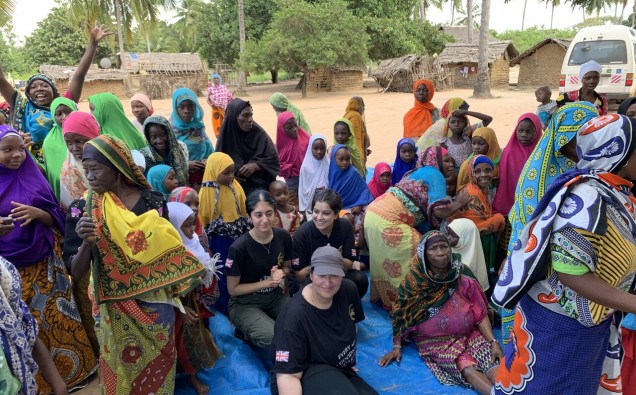“The last thing anyone wants to do is let down a person in need. For me saying no doesn’t come easy, especially seeing the situations that most people here are in. The remote villages of Tanga (one of Tanzania’s poorest regions) have to live and survive in harsh conditions, and I definitely wasn’t looking forward to saying no even more so than in daily life.”
Those were the words of volunteer Nazia Choudhry as she prepared to distribute aid to poverty-stricken and impoverished villagers as part of a 10-day charity deployment to Tanzania.
Nazia, a human resources officer from Birmingham, was one of six volunteers taking part in Mission Possible, run by the charity Islamic Help. Each of the six raised £5,000 for October’s deployment and the aid that they directly distributed to beneficiaries.
That involved interviewing villagers and selecting who would receive the aid, which ranged from livestock for livelihoods to bicycles for schoolchildren who would normally have to walk – barefoot – to classes several miles each day.
It also meant having to tell some of the villagers they would be going away empty-handed as they didn’t meet the needs criterion used for the aid distribution. As these extracts from Nazia’s blog -written during the deployment – explain, it was a day she had been dreading.
“Prior to us being able to distribute though came the tough part – letting those beneficiaries we’d interviewed, but not chosen to receive aid, know that they hadn’t been selected.
But I understand what Islamic Help is trying to teach us with this experience. As much as we may want to, we can’t help everyone. Every situation and need has to be individually assessed and acted upon.
Going to see our first beneficiary to explain they hadn’t been selected had me filled with dread and anxiety. Walking towards the beneficiary’s home, a million things were running through my mind. Had we picked the right people to say no to? Did these people really not deserve the aid over the others? How would they react when they find out we hadn’t selected them?
With my mind racing, we sat down and looking at the beneficiary, my heart sank as I attempted to clear my mind of all the thoughts and focus on wording how we would break the news to him.
I had come on this journey to help as many people as possible but I had also come with the intent to push myself out of my comfort zone, so I realised this was something – as uncomfortable as it was for me – that I had to do.
Between us, we explained gently to the beneficiaries that we understood their struggles but had decided from our interviews that there were other beneficiaries who did require the aid more than themselves at this time, and we were sorry we couldn’t help them in this moment.
The man turned to us and thanked us which took me by surprise. I didn’t really know what to expect with his reaction but I wasn’t expecting the gratitude portrayed, simply for us having come out just to speak to them despite us giving him news I’m sure he did not want to hear.
It broke my heart in more ways than one. These people who have next to nothing can be so gracious and polite despite all the hardships they face. This was amazing to me and makes me want to be better as a person and a reminder that we should be thankful for every action incurred by people for us.”
The full blog and those of the other volunteers on the 2019 and previous deployments, plus details of the Mission Possible programme can be found at www.islamichelp.org.uk/missionpossible























